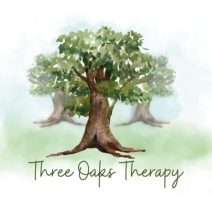Banter among friends, colleagues, or peers can be a light-hearted and enjoyable way to build relationships and share a laugh. However, there's a fine line between harmless banter and hurtful bullying. Understanding when banter crosses over into bullying is crucial, as it can have a significant impact on individuals' well-being. In this blog, we'll explore this issue and discuss what you can do about it.
Recognising the Transition: Banter vs. Bullying
Banter typically involves light teasing, jokes, and playful comments exchanged among people who have a mutual understanding and respect for each other's boundaries. It's characterised by its good-natured and non-offensive nature.
However, banter can easily turn into bullying when:
It Becomes Hurtful - If the comments or jokes start to hurt someone's feelings or self-esteem, it's a sign that the line has been crossed.
It's Unwanted - When one person consistently engages in banter despite the other party expressing discomfort or asking them to stop, it becomes bullying.
It Targets Vulnerabilities - Bullying often targets personal vulnerabilities, such as appearance, race, gender, or past experiences. If the banter zeroes in on these sensitive areas, it's no longer harmless.
The Impact of Banter Turned Bullying
Allowing banter to transition into bullying can have severe consequences for both the victim and the person engaging in the behaviour. Victims may experience anxiety, depression, and a loss of self-esteem, leaving them feeling isolated and powerless. Furthermore, bullying can inflict lasting damage on relationships, eroding trust and mutual respect, potentially creating a toxic environment within friendships, workplaces, or even families. In a workplace setting, bullying can also hinder productivity and morale, resulting in elevated turnover rates and diminished job satisfaction.
Taking Action Against Bullying
If you recognise that banter has crossed over into bullying, there are steps you can take to address the situation:
Speak Up: If you're comfortable doing so, communicate with the person responsible for the bullying. Express your feelings and let them know that their behaviour is hurtful and unacceptable.
Set Boundaries: Clearly establish your boundaries and let others know when they've crossed the line. Respect is key in any relationship.
Seek Support: Reach out to friends, family, or a mental health professional for support. They can provide guidance and help you navigate the emotional toll of bullying.
Report It: In a workplace or school setting, report bullying to the appropriate authorities or HR department. They can initiate investigations and take action to address the issue.
At Three Oaks Therapy, I understand the importance of maintaining healthy relationships and boundaries. If you or someone you know is struggling with the impact of banter turned bullying, I am here to provide support and strategies for coping and healing. Remember, everyone deserves to be treated with respect and kindness, and it's never too late to stand up against bullying behaviour.
Link for help for children and you people Young Minds
Link for National Bullying Helpline website
